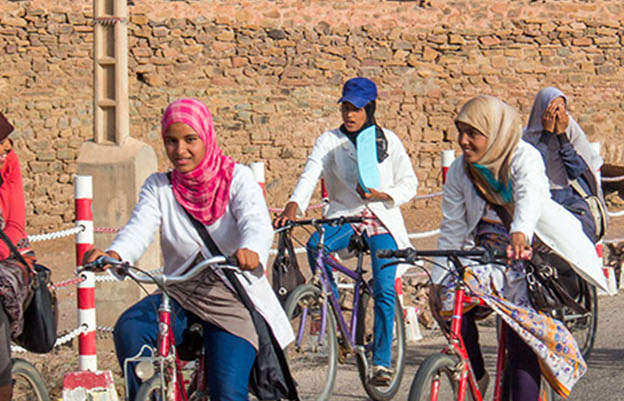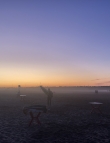Melle had been to Marrakech before studying at NIMAR. This week he writes about his expectations and the ways Rabat surprised him.
At first glance, it seemed like a huge thing: studying abroad in an unfamiliar country on ‘your own’. I have been in Morocco before; both times I travelled to Marrakech, which I found a really exhausting city. People tried to sell me something and told me where to go the whole time. Moreover, I found it a very expensive city and the intensive and touristy vibe of Marrakech was too much for me. Back in Leiden, I followed two courses of Nadia Bouras who talked about the NIMAR with a tremendous enthusiasm that made me curious about the minor. I looked into it and it appealed to me. So there I was, packing my bag in my room in Leiden. I had bought an extra laptop charger and telephone, assuming with an orientalist perspective (which would have made Edward Said very angry) there would not be any place to buy one of those in Morocco. Hence, I saved some room in my bag by not packing any towels.”
Once in Rabat my prejudices, based on my experiences in Marrakech, were completely smashed. Rabat is one of the most relaxed and accessible cities I have been to so far. Whereas in Marrakech I had second thoughts to ask for directions since they often led me to a shop of a family member, in Rabat everybody is amazingly helpful.
The locals are patient when you try to talk to them in very faulty French or Darija and will try their best to lend a helping hand with your problem. They really appreciate it when you try to talk to them in Darija. For example, every morning when I walk to the NIMAR, I make a small talk (or at least try to) in Darija with a guy who helps people with parking. When he sees me, he gives me a big genuine smile as if I am his long lost son and yells from the other side of the street “S-salamu 3alikum!” When I respond with ‘Wa 3alikum s-salam’, his smile gets twice as wide. I find that getting in contact with locals, even though it still is on a superficial level, is rewarding. Comparing it with the Netherlands, although I do not know how it is to be an outsider there, people are very hospitable in Rabat.
Another thing that surprised me is that life is fairly cheap in Rabat. Going out for dinner is almost as cheap a cooking at home. For a richly filled Tajine you will pay 35 MAD (approximately €3). Vegetables and fruit are generally half the price they are at the Albert Heijn in the Netherlands. In the Medina (the old city), you can get cheap clothing if you are a good bargainer. Moreover, Rabat is an internationally orientated city. You can go to the cinema and see a movie in English, which I did not expect. I thought that every movie would be synchronized in French or Arabic. It also is possible to go clubbing or have a beer in certain places, but you do need to be a bit careful with drinking alcohol. In addition, the beach life is amazing in Rabat, the weather is perfect most of the times (although I have only been here in September) and you can do many water sports. Surfing is a big thing just like canoeing and stand-up paddling. Aside from the water sports, the beach is a place where you can just lay down, relax and have a swim without experiencing hindrance from the water sports.

Recapitulating, contrary to some prior expectations, I find Rabat a welcoming city that is surprisingly calm. I did not have any problems with adapting to the life here and would recommend the city to everybody who is ready to open up to a completely different experience during their studies.



